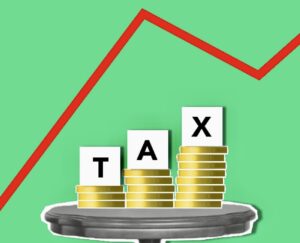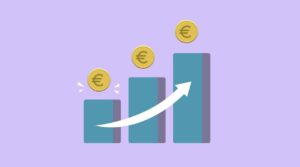Sei alla ricerca di una nuova casa. Hai trovato la casa dei tuoi sogni, ma hai bisogno di ottenere un mutuo per acquistarla. Avete considerato in che modo i tassi di interesse della Banca Mondiale potrebbero influire sulle rate del vostro mutuo e sul vostro conto di risparmio? Anche se può sembrare lontano dalle tue finanze, i tassi fissati dalla Banca Mondiale influenzano gli interessi che le banche addebitano ai consumatori. In questo articolo, analizzeremo esattamente come le modifiche al tasso di base della Banca Mondiale possono influenzare il tasso di interesse ipotecario e i guadagni del conto di risparmio. Imparerai come prendere decisioni finanziarie intelligenti basate su previsioni di aumento o calo dei tassi. Sia che tu stia cercando di acquistare una casa ora o che tu voglia semplicemente aumentare i tuoi risparmi, comprendere i tassi della Banca Mondiale ti consente di massimizzare i tuoi soldi.

Il ruolo della Banca Mondiale
La Banca Mondiale, nota anche come Banca Internazionale per la Ricostruzione e lo Sviluppo, mira a ridurre la povertà e migliorare gli standard di vita fornendo prestiti e sovvenzioni ai paesi in via di sviluppo. Per finanziare questi prestiti e sovvenzioni, la Banca Mondiale emette obbligazioni sul mercato globale. I tassi di interesse che la Banca Mondiale applica sui prestiti sono strettamente legati ai tassi che pagano sulle obbligazioni.
Tassi d’interesse e denaro
I tassi che la Banca Mondiale applica e paga hanno un impatto diretto sui tassi di interesse nelle economie sviluppate. Quando la Banca Mondiale alza i tassi di interesse su prestiti e obbligazioni, le banche dei paesi sviluppati spesso seguono l’esempio. Ciò significa che aumentano anche i tassi d’interesse su ipoteche, conti di risparmio e certificati di deposito. Al contrario, quando la Banca Mondiale abbassa i tassi, anche i tassi di interesse sui prestiti al consumo e sui conti bancari in genere diminuiscono.
Che impatto ha su di te
Per i mutuatari, tassi più alti della Banca Mondiale di solito significano interessi più elevati addebitati su mutui e altri prestiti. Ciò può aumentare i pagamenti mensili, influire sulla sostenibilità e ridurre l’importo che puoi prendere in prestito. D’altra parte, i tassi più alti sono una buona notizia per i risparmiatori e gli investitori, poiché anche gli interessi maturati sui conti di risparmio e sui CD aumenteranno, consentendo al tuo denaro di crescere più velocemente.
I tassi più bassi della Banca Mondiale consentono ai mutuatari di pagare meno interessi sui prestiti e di tenere più soldi in tasca ogni mese. Tuttavia, i risparmiatori otterranno rendimenti inferiori sui conti e vedranno una crescita più lenta. I proprietari di case potrebbero prendere in considerazione il rifinanziamento a tassi più bassi per ridurre i costi.
Le azioni della Banca Mondiale, pur essendo rivolte ai paesi in via di sviluppo, hanno un effetto a catena che ha un impatto sui tassi di interesse nei paesi sviluppati e sulle finanze dei consumatori. Prestare attenzione alle variazioni dei tassi può aiutarti a prendere decisioni finanziarie informate.
L’impatto dei tassi d’interesse su mutui e depositi
Tassi d’interesse e rate ipotecarie
I tassi di interesse fissati dalle banche centrali come la Banca Mondiale hanno un impatto diretto sui tassi di interesse che le banche e gli altri istituti di credito addebitano per mutui e prestiti. Quando la Banca Mondiale aumenta i tassi, salgono anche i tassi ipotecari. Ciò significa che la rata mensile del tuo mutuo aumenterà, lasciandoti con meno soldi nel tuo budget per altre spese. Molti proprietari di case finiscono per pagare migliaia di interessi in più per tutta la durata del mutuo.
I vostri conti di risparmio
D’altra parte, l’aumento dei tassi d’interesse è una buona notizia per i vostri conti di risparmio. Le banche spesso aumentano il rendimento percentuale annuo (APY) sui conti di risparmio e sui certificati di deposito (CD) quando i tassi di riferimento aumentano. Ciò significa che il tuo denaro guadagnerà più interessi, consentendo ai tuoi saldi di crescere più velocemente. Ad esempio, se hai $ 10,000 in un conto di risparmio che guadagna l’1% APY, guadagnerai $ 100 di interessi all’anno. Ma se i tassi salgono al 2%, guadagnerai $ 200, raddoppiando il tuo interesse. Nel corso di diversi anni, questi tassi più elevati possono davvero sommarsi.
Come si prepara
Poiché i tassi di interesse hanno un impatto sulle tue finanze in molti modi, è importante prepararsi a potenziali cambiamenti. Se i tassi ipotecari iniziano a salire, potresti prendere in considerazione la possibilità di rifinanziare il tuo mutuo per la casa per bloccare un tasso fisso più basso. Dovresti anche cercare di pagare i debiti ad alto interesse come le carte di credito per ridurre al minimo l’impatto di tassi più elevati. Per quanto riguarda i risparmi, guardati intorno in diverse banche per trovare i rendimenti più alti per i tuoi soldi. Prendi in considerazione l’idea di mettere fondi in CD o conti di risparmio ad alto rendimento dove possono guadagnare la maggior parte degli interessi.
Piccole variazioni dei tassi di interesse possono sembrare insignificanti, ma nel tempo possono avere un effetto enorme sulla tua situazione finanziaria. Presta molta attenzione alle azioni delle banche centrali e pianifica di conseguenza. Assicurati di avere abbastanza nel tuo budget per tenere conto della possibilità di rate ipotecarie e interessi più elevati. Allo stesso tempo, cerca modi per far lavorare di più i tuoi soldi per te guadagnando più interessi quando i tassi iniziano a salire. Con la giusta strategia, puoi sfruttare l’impatto dei tassi d’interesse piuttosto che diventarne vittima.

In che modo le variazioni dei tassi d’interesse influiscono sulle tue finanze
Tassi ipotecari
Quando la Banca Mondiale alza i tassi di interesse, spesso seguono i tassi ipotecari. In qualità di proprietari di un’abitazione, ciò significa che la rata del mutuo potrebbe aumentare, anche se si dispone di un prestito a tasso fisso. Se hai un mutuo a tasso variabile (ARM), è probabile che i tuoi pagamenti aumentino in modo più diretto. Tassi più alti significano che una parte maggiore del pagamento va a pagare gli interessi piuttosto che pagare il capitale. Questo può rallentare la costruzione di equità nella tua casa.
Tassi di risparmio
D’altra parte, l’aumento dei tassi della Banca Mondiale porta spesso a tassi di interesse più elevati sui conti di risparmio e sui certificati di deposito (CD). Questa è una buona notizia se hai contanti in banca. Il denaro che hai messo da parte ti farà guadagnare un rendimento migliore, consentendo al tuo saldo di risparmio di crescere più velocemente. Assicurati di fare acquisti in diverse banche per ottenere i tassi migliori. Un piccolo aumento dei tassi, anche dello 0,10%, può aggiungere fino a centinaia di dollari in più all’anno su saldi più grandi.
Tassi di prestito
Anche i tassi di interesse su altri prestiti come prestiti personali, prestiti studenteschi e prestiti auto sono spesso legati al tasso di riferimento della Banca Mondiale. Quando i tassi salgono, il costo per prendere in prestito denaro diventa più costoso. Se hai prestiti a tasso variabile, potrebbe valere la pena cercare un rifinanziamento a tasso fisso per bloccare pagamenti più bassi. Per i nuovi prestiti, pensa attentamente alla durata e al tipo di prestito che ha più senso in base all’attuale contesto di tassi.
In sintesi, le decisioni della Banca Mondiale sui tassi di interesse hanno un effetto a catena sull’economia globale e sulle tue finanze personali. Presta attenzione alla direzione in cui si muovono i tassi in modo da poter fare scelte intelligenti nella gestione del tuo denaro e massimizzare il ritorno sui tuoi investimenti. Quando i tassi iniziano a salire, potrebbe essere il momento di rivalutare il tuo budget, estinguere i debiti a tasso variabile e cercare posti a più alto rendimento dove mettere i tuoi soldi.
Quindi il gioco è fatto. I tassi di interesse della Banca Mondiale possono sembrare astratti o rimossi dalla tua vita quotidiana, ma hanno un impatto reale sui tassi di interesse che paghi per i mutui e guadagni sui depositi. Anche se non hai il controllo diretto sulle politiche della Banca Mondiale, puoi rimanere informato sulle tendenze e prendere decisioni finanziarie intelligenti di conseguenza. Sapere come le forze economiche globali come la Banca Mondiale influenzano il tuo denaro ti consente di ottenere il massimo dal tuo denaro duramente guadagnato. Tieni d’occhio queste tariffe, guardati intorno per trovare le migliori offerte e il tuo portafoglio ti ringrazierà.
Ig – @fairness_mag




